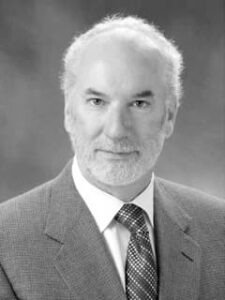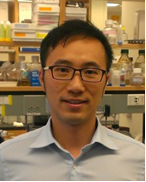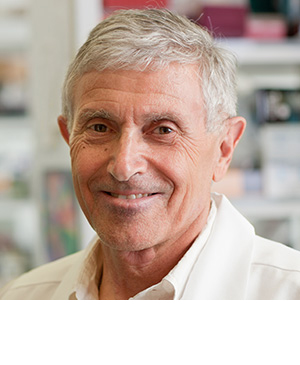scientific advisory board

Dr. Wayne Hancock
Children’s Hospital of Philadelphia
Dr. Kelvin Luk
University of Pennsylvania
Dr. John Rossi
City of Hope
Wayne Hancock, M.B.B.S., Ph.D.
Professor of Pathology and Laboratory Medicine
University of Pennsylvania
Chair, Division of Transplant Immunology
Children’s Hospital of Philadelphia
Dr. Wayne Hancock undertook his medical, Ph.D. and pathology training in Australia before coming as a post-doc to Harvard Medical School and training in transplant immunology. He has worked with many of the pioneering figures in transplantation, as well as a stint in biotech in Boston, followed by moving to the University of Pennsylvania and Children’s Hospital of Philadelphia in 2001. His lab has a particular interest in Foxp3+ T-regulatory (Treg) cells. Finding ways to pharmacologically enhance Treg function for the sake of transplantation has led him into many studies of histone acetyltransferases and histone deacetylases, as well as the roles of other post-translational modifications in regulating Foxp3. Conversely, finding ways to impair Treg functions has important applications in immuno-oncology, including through use of antisense oligonucleotides to knockdown Foxp3. In support of these studies, he is funded by NIH/NIAID/NHLBI for transplant work and by NIH/NCI for his cancer immunology studies. Dr. Hancock has more than 75 papers on Foxp3+ Tregs and >400 papers overall in PubMed and an H-index of 110.
Kelvin Luk, Ph.D.
Research Associate Professor of Pathology and Laboratory Medicine
University of Pennsylvania
Dr. Luk received his BSc (Microbiology and Immunology) and PhD (Pathology) from McGill University. He completed his postdoctoral training at the University of Pennsylvania and obtained a Masters in Translational Research from Penn in 2013. He is currently Research Associate Professor of Pathology and Laboratory Medicine at the University of Pennsylvania and member of the Penn Center for Neurodegenerative Disease Research. Dr. Luk’s research aims to untangle the relationship between the formation of alpha-synuclein pathology that characterizes Parkinson’s disease (PD) and related disorders (e.g. Dementia with Lewy Bodies), as well as its contribution to neuronal dysfunction and degeneration. Using a multidisciplinary approach spanning in vitro, cell-based, and in vivo models, his team interrogates the mechanisms by which this protein misfolds into pathological agents that self-propagate capable of transmitting from cell-to-cell. The group has developed several novel cell- and animal-based models of synucleinopathy that are widely used in the field. This knowledge base has also been leveraged towards developing innovative tools for the detecting neurodegeneration-related proteins and to evaluate new therapies for neurodegenerative disorders.
John Rossi, Ph.D.
Morgan & Helen Chu Dean’s Chair
Lidow Family Research Endowed Chair
Professor, Department of Molecular and Cellular Biology
Dean, Irell & Manella Graduate School of Biological Sciences
Beckman Research Institute of City of Hope
Dr. John Rossi is Lidow Family Research Endowed Chair and Professor in the Dept. of Molecular and Cellular Biology, Beckman Research Institute of the City of Hope. He currently serves as the Morgan and Helen Chu Dean’s Chair, and Dean of Irell & Manella Graduate School of Biological Sciences. He served as an Associate Director of Laboratory Research – City of Hope Comprehensive Cancer Center for City of Hope. He joined City Of Hope, Inc. (COH) in 1980 as an Assistant Research Scientist in the Department of Molecular Genetics. He was Chairman of the Division of Biology in 1992. In 1993, COH bestowed its highest honor upon him by naming him to its Gallery of Medical and Scientific Achievement for his pioneering work at the molecular level in the battle against AIDS and other major diseases.
Dr. Rossi received a BA in biology from the University of New Hampshire and a PhD in microbial genetics from the University of Connecticut. Following a post-doctoral fellowship in Molecular genetics at Brown University Medical School, he has been on the faculty of City of Hope National Medical Center in Duarte, California.
Dr. Rossi is widely regarded as a World Leader in the development of RNA interference and in clinical research with nucleic acids for the treatment of various diseases. His present focus is on enhancing the intracellular efficacy of ribozymes, small RNAs and siRNAi and their application to gene therapy for HIV and cancer.
He is the Editor in chief of Molecular Therapy – Nucleic Acids, along with Deputy Editor of Molecular Therapy. He also is an Editor for JBC, Editor in chief BMC Biotechnology and Human Gene Therapy. In 2002 he received the Merit Award from the Division of AIDS of the National Institute of Allergy and Infectious Diseases. Dr. Rossi was honored with the American Association for Clinical Chemistry Outstanding Speaker Award in 1991, and AAAS Fellow in Medical Sciences 2011. He has authored more than 275 peer-reviewed papers and more than 70 book chapters.
Dr. Rossi Co-Founded Dicerna Pharmaceuticals and Calando Pharmaceuticals, Inc. and was the founding president of the Oligonucleotide Therapeutics Society.
